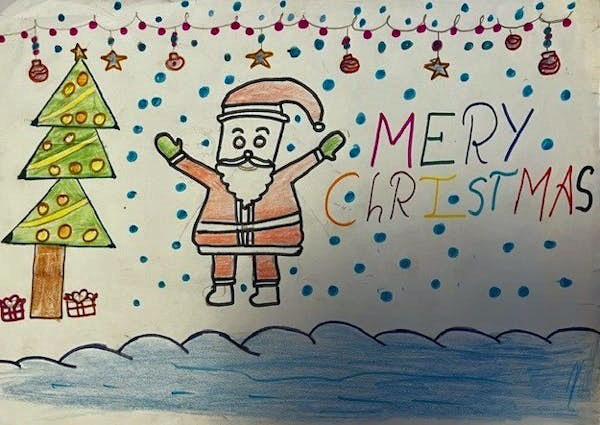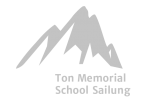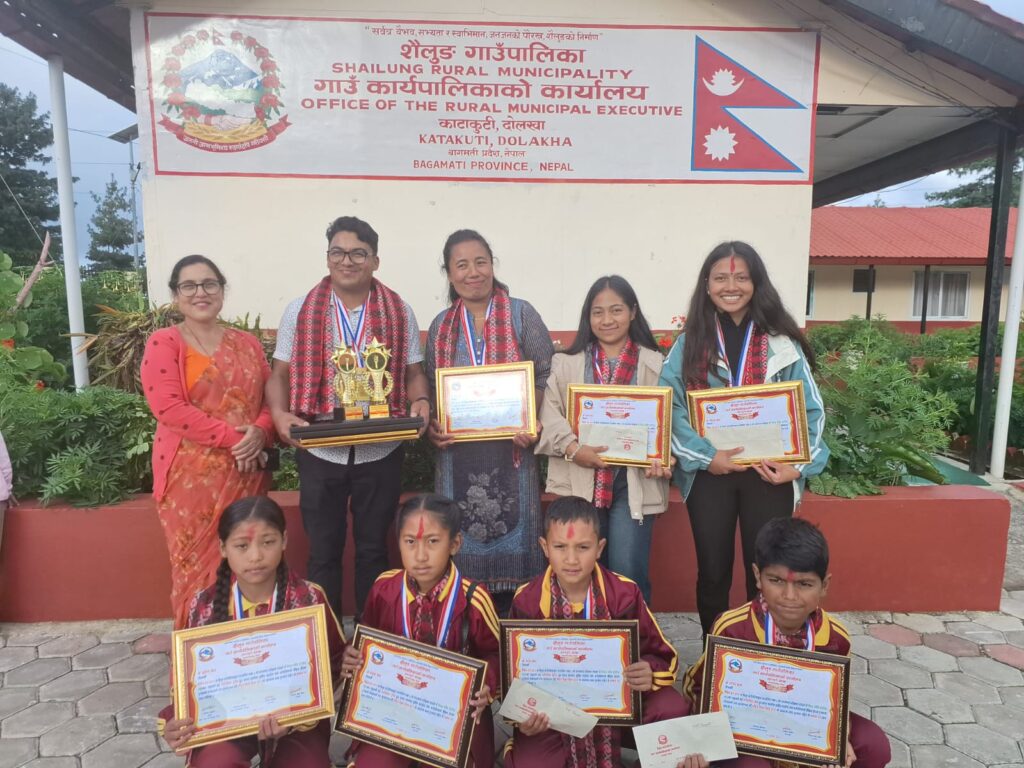
Successful education and new developments!!!!
The Ton Memorial School scored highly in regional tests and finished with two stars after the last tests.
An unprecedented result.
Proud of the two star score.
We are certainly a little proud to announce that the Ton Memorial school, after participating in the regional class year-end test, has achieved two of the 5 available stars. The stars were available for classes 5, 7, 8, 10 and 12 that achieved the best average. Our school participated with classes 3 and 5 and both classes achieved the best scores of all 30 participating schools. Children, teachers and schools with the top scores received an award and a cash prize. With this great result, the quality of the education was once again recognized. For more details about the education system in Nepal, see the news item *2 Stars* on our website.
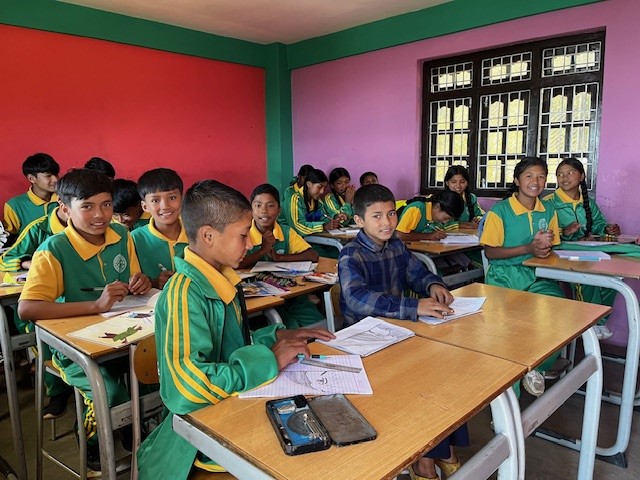
New developments in education.
For some time now, Sailung has been focusing on improving the quality of education for the entire community. You could read about this extensively in the previous newsletter. In the meantime, the merger of the Ton Memorial School [TMS] and the Shree Sailungeswhor Basic School has become a fact. This decision was made in close consultation between the local community, parents, teachers, the government and the board of our foundation. We are convinced that this will guarantee the continuity of high-quality education for the children in the region.
Why the merger of TMS and the Government School?
While the transition has brought challenges, including adjustments for teachers and students, there is now an opportunity for broader collaboration, increased resources, and a shared commitment to improving the quality of education in Sailung.
A Sustainable Solution: Transfer to Local Government (VDC)
In order to ensure the long-term impact of the Ton Memorial School (TMS) and to preserve your valuable investment, the school building and associated infrastructure will be transferred to the local government. This offers several advantages:
1. Educational offer: The expansion of a good educational offer from schooling up to and including Class 5 now to Class 8. This is an important reason for parents to choose to merge with the schools: education close to home. For an explanation, see the appendix on the education system in Nepal.
2. Regional cooperation: The merger creates the opportunity to collaborate with the high-scoring Durga Secondary School (in Sailung Ward 4, an hour away), which offers education up to Class 12 and allows for exchanges. It also has a hostel for children who live too far away.
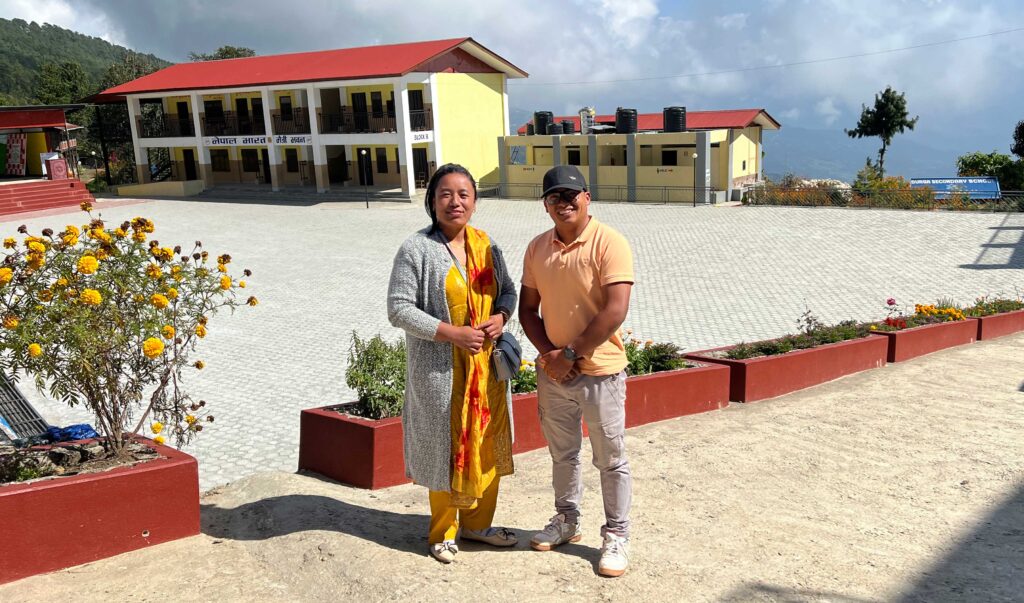
3. Future-proof: By officially making the Ton Memorial School building part of the government system, it will be future-proof. It will be used to both expand the current educational provision and facilitate additional community activities. The government is also responsible for the costs of maintenance and upkeep.
4. Parents' school contribution: it has been agreed that parents will continue to contribute to the salary costs of teachers in this transitional situation. Salaries will increase by 50 to 100%.
Sponsorship
Your support was and remains crucial. For the next two years, we have agreed to pay a quarter of the teachers' salaries. This period will be used to obtain additional licenses for teachers, in line with the formal requirements set by the Nepalese government. The sponsorship will - in addition to supporting the children - also be used for salaries and training, and other educational purposes, such as extra lessons.
All but one teacher has also transferred to the new collaborative school. From the other school, 3 teachers have been transferred and the headmaster is retiring at the end of the year.

Next Steps
– draw up and sign the transfer document
– finalize legal issue surrounding the land on which the school is located
– financial settlement of land transaction
– inform child sponsors and request approval for reallocation of resources
We are working closely with the local government to complete this process.
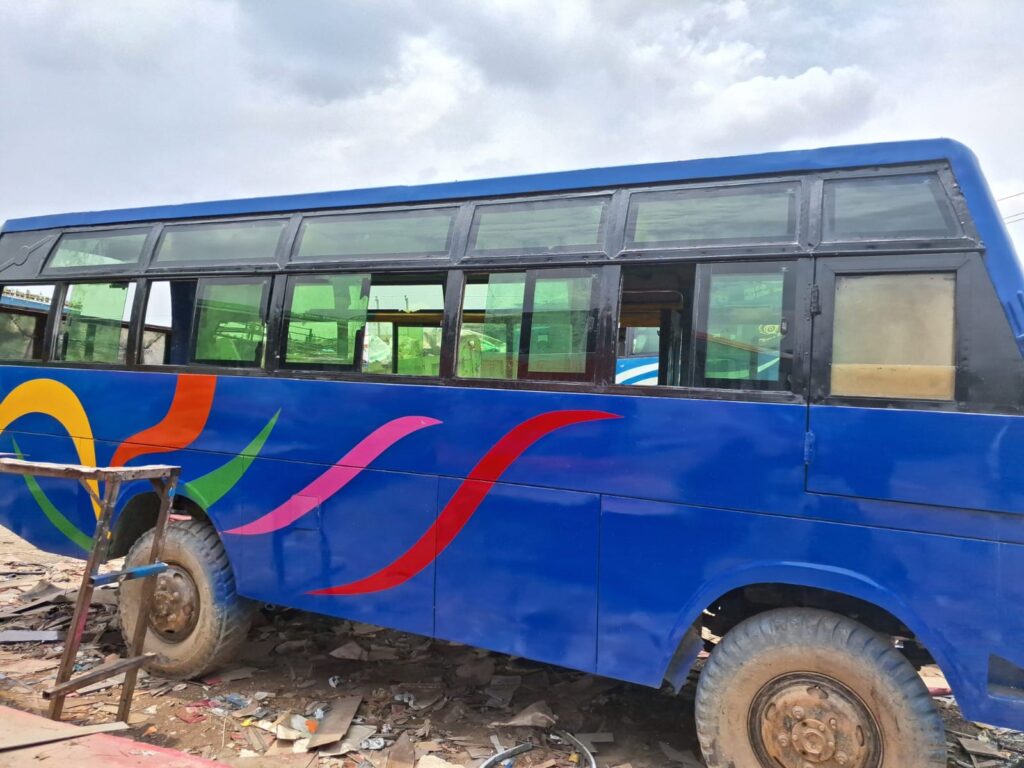
The school bus
After careful consideration, the school bus has been retired. Unfortunately, it is often broken down and it has also become apparent that it is not really responsible to drive on the very poorly maintained paths in a bus full of children, especially during the rainy season. Due to this decision, a number of small children can no longer come to school at the moment and have found a place elsewhere or have waited until they are old enough to walk the distance. The sponsors of these children will be informed of this.
Back to Nepal
School integration, Birth center and Agriculture After our visit in April, it proved useful to return to Nepal in 2024 to further discuss and elaborate on the school integration. At the same time, this offered a good opportunity to evaluate the developments around the birth center and the agricultural project. At the end of October, friend Johannes and I therefore traveled to Kathmandu, where we had valuable meetings and made preparations before we traveled on to Sailung. In Kathmandu we spoke with, among others: – Mr. Krijn de Best, chairman of *Nepal Foundation*, with whom we exchanged ideas about job creation and school transfer. – Mrs. Pema Chhodon, teacher at various schools in Kathmandu, for whom we were able to hand over children's socks and donations. – Mr. Matthijs van Rijn, founder of *The Green Intelligence*, an organization that focuses on nature restoration through fruit tree planting. Local farmers receive compensation for planting and maintaining the trees, a project we continue to follow with great interest. – Mr. Nelson Man Shrestha, Director *NAgro*, an NGO specialized in agricultural development, including the introduction of larger plastic greenhouses, developed by Wageningen University. – Mr. Paras Rana of *Rotary Club Kathmandu Mid-Town*, with whom we consulted on various projects. – *ISARD*, our local partner organization, where we evaluated current and new project applications and discussed the coordination and monitoring of the projects. In addition, we took the time to visit three special temples in Kathmandu. Of course, the Boudha Stuppa, close to our Buddhist hotel. The stupa dates back to the 5th century and is one of the oldest in Nepal. The Swayambhunath, better known as the Monkey Temple, is an ancient stupa on a hill west of the city. The many monkeys that walk around freely give it a unique charm. And the Shiva temple of Pashupatinath, located on the holy Bagmati River, offered us an impressive insight into age-old rituals around life and death. This UNESCO world heritage site made a deep impression.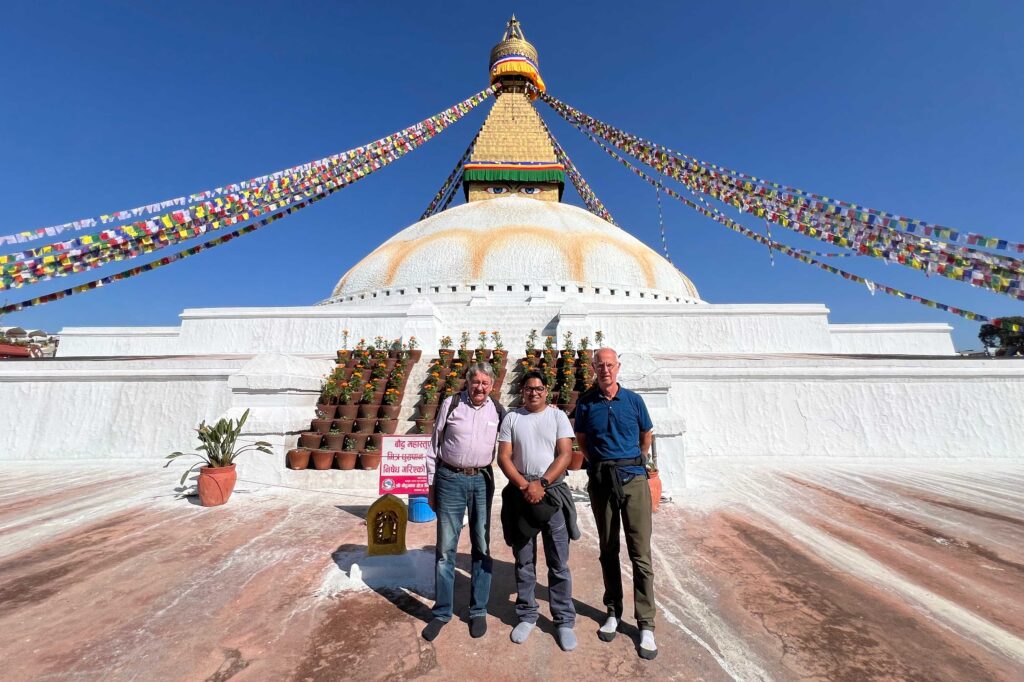

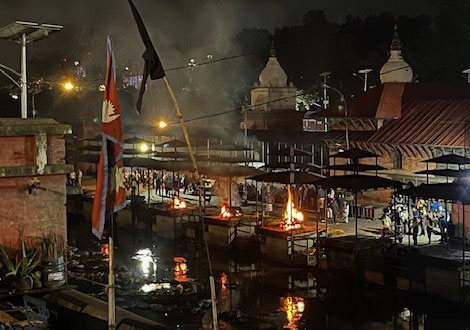
In Sailung, discussions with representatives of the municipality, children, parents and teachers were central, with the theme of the integration of the schools as described above. This process was supervised by a Nepalese consultant from Wilde Ganzen.
With this visit we have not only made important progress in ensuring the future of our school, but also gained new insights that contribute to our projects and collaboration in the region.
In Sailung, discussions with representatives of the municipality, children, parents and teachers were central, with the theme of the integration of the schools as described above. This process was supervised by a Nepalese consultant from Wilde Ganzen.
With this visit we have not only made important progress in ensuring the future of our school, but also gained new insights that contribute to our projects and collaboration in the region.
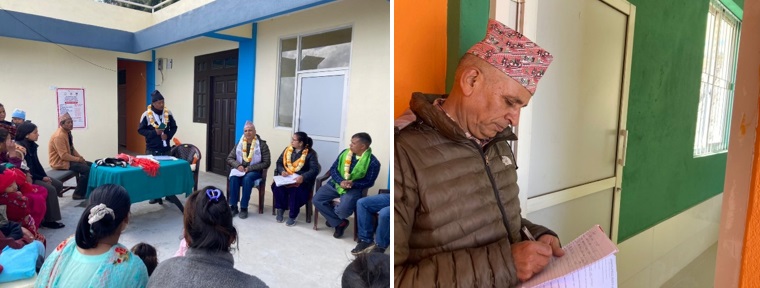
Relief and recovery after heavy rainfall in Sailung
In late September, Nepal was hit by incredibly heavy rains, causing severe flooding, landslides and roadblocks. Sailung was not spared either. Three homes were completely destroyed by mudslides and landslides, and roads were blocked or partially washed away. Fortunately, there were no fatalities in Sailung, although several residents sustained serious injuries, including broken ribs, a leg and an elbow. Neighbours and acquaintances carried the injured for more than three hours to a main road, where a truck took them to hospital. All the injured have now been discharged from hospital.
The affected families have lost practically all their belongings, including 30 goats that were kept in stables under their homes. Thanks to rapid action through ISARD, we were able to distribute blankets and basic necessities and provide assistance with medical expenses that were not covered by insurance
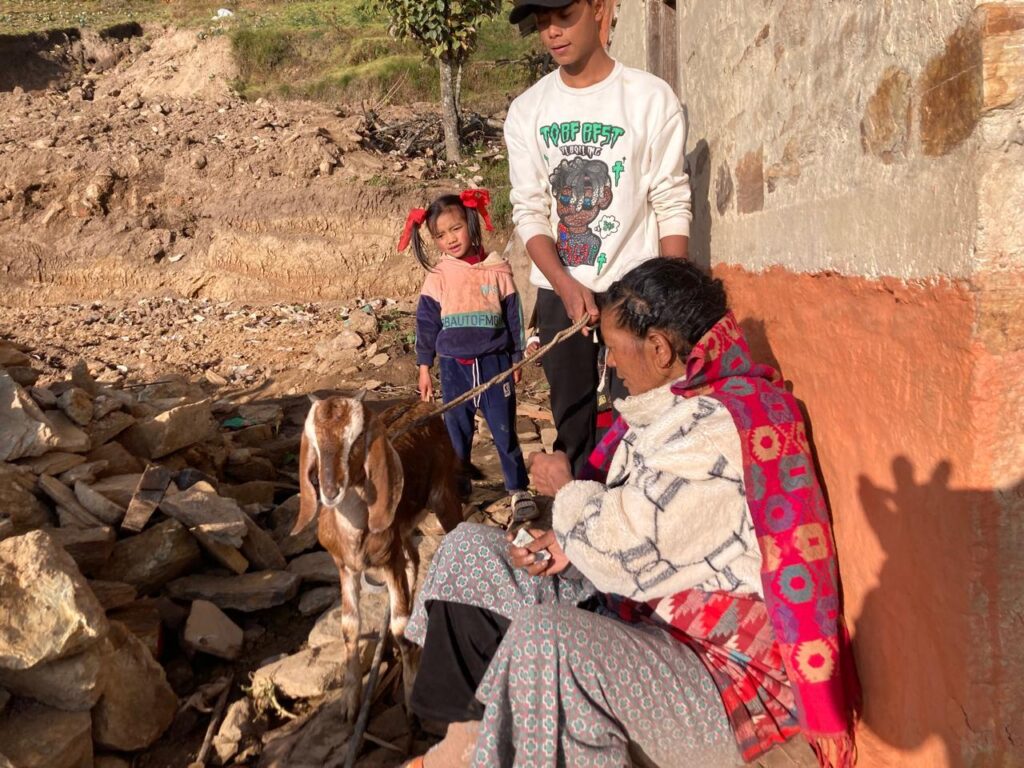
With a donation of €1000,- from the Soroptimistclub Lisse-Bollenstreek and €1200,- from our resources we have transferred a total of €2200 to help. In addition, the first new goats have already been sponsored by friends of the Foundation.
Despite the difficult circumstances, work is being done to restore the homes. Parts of the destroyed houses are being collected to rebuild living space soon.
Greengrocer at home!
As you may remember, the agricultural project consists of two parts. Agricosh, where the formation of community and savings groups was started last year. Community groups are learning groups that learn new cultivation methods and crops. The savings groups are involved in resource management and the provision of micro loans. During the visit, we visited over 20 families. It is heart-warming to hear all the positive stories and see the results. None of the plastic (test) tunnels collapsed during the monsoon, and we found a great diversity of vegetables such as tomatoes, beans, peppers, peppers, eggplants, mushrooms, lettuce varieties and all kinds of herbs. They are now mainly used for home consumption, the mushrooms partly go to the market in Kathmandu.
Harvesting 125 kg of tomatoes, 50 kg of mushrooms and more than 300 cucumbers in one harvest season gives the participants an enormous boost. Everyone who does not yet have a greenhouse wants a greenhouse in the coming period and those who participated in the test certainly want to use more. The effects of the monthly group meetings initiated by ISARD can also be seen in the fields where groups of women/men are often weeding together, which used to be done more individually. In the (savings) groups, a small amount is deposited monthly that can be borrowed by the members for a short period at an agreed interest rate.
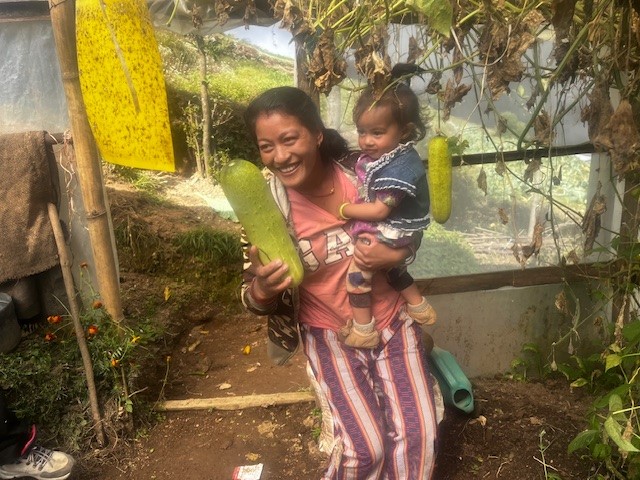
Sustainable Agriculture Transformation Sailung 2025-2026
Given the positive progress of the pilot of the Agricosh project, it was decided to continue directly with the SATSh project 2025-2-26. This project continues where Agricosh has shown that results can be achieved in a short time. The focus will be on refining cultivation methods, (organic) fertilization and management of the land and trading products on the market. This should lead to a serious improvement in the economic situation of the families and more certainty about the sustainable nature of that situation. This will also mean that families have more room to pay school fees, for example, and thus contribute to the quality of education for their children. The agricultural project could mean a major step towards a self-sufficient community.
During our visit it became clear that the sponsorship of the SATSh agricultural project cannot be realized through a Rotary Global Grant. Therefore, in close cooperation with ISARD, we have adjusted the project and presented it to Stichting Wilde Ganzen.
We are happy to announce that Wilde Ganzen is expected to contribute €30,000 to the €90,000 needed. This means they will match your donations by 50%!
To raise the remaining €60,000, we are looking for additional sponsors. The good news is that we have already received €30,500 of this. For the last €29,500, we still need your help.
More information about the project can be found on our website
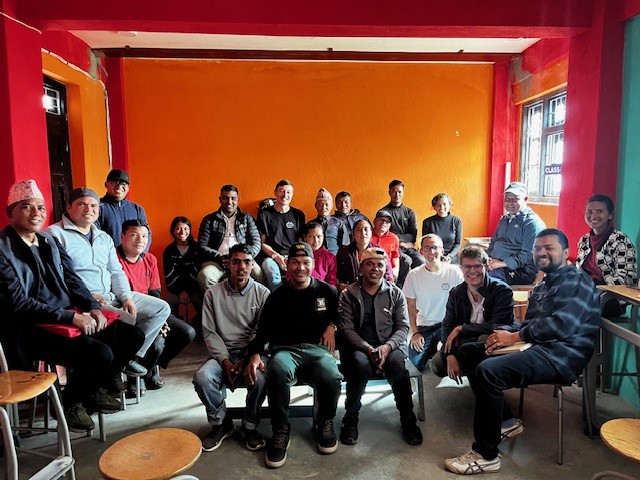
During our visit, representatives from Engineers Without Borders (EWB) Karlsruhe were also present. Together with ISARD, they worked on site for almost four weeks to prepare the water project within SATSh. This included an inventory of water sources, plans for a 2 km long main pipeline and the establishment of a water committee in the community. The aim is to provide reliable access to water for households and agriculture, which is currently often inaccessible and time-consuming.
The enthusiasm and cooperation of students from Germany, Nepal and Bolivia was inspiring and underlines the importance of international cooperation for a better future in Sailung.
Jan Post
On behalf of the Sailung community and board.
Happy New Year and a prosperous and healthy 2025
